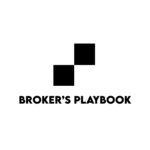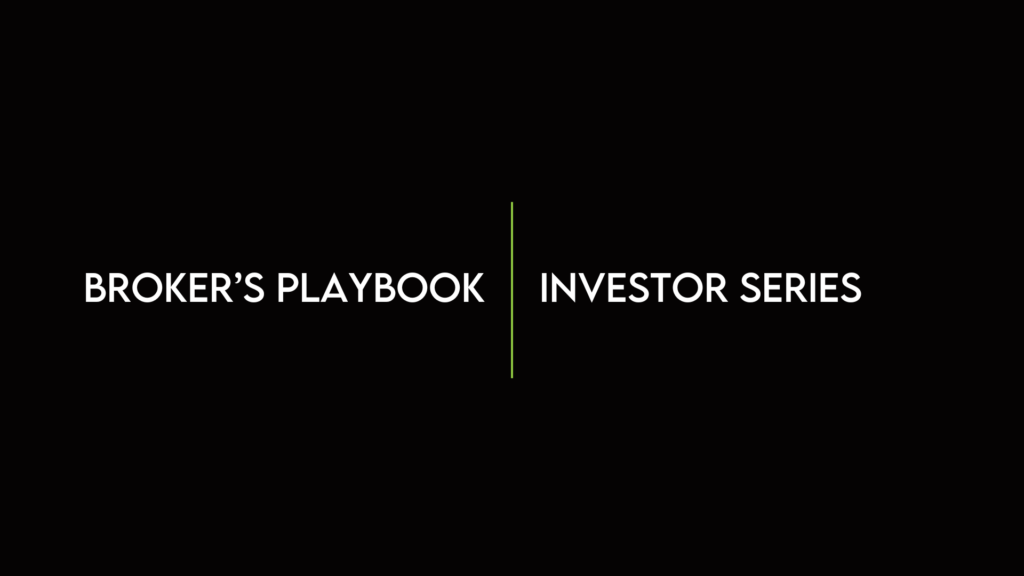
Welcome to a special Broker’s Playbook Podcast Episode! This week we’ve got something a bit different for our real estate professional brothers and sisters. We were privileged to sit down and moderate the Tech Disruption Panel at the Ontario Real Estate Association’s Reality Plus event, featuring some of Canada’s most fascinating PropTech Platforms.
On this panel, you will get to hear directly from the industry leaders and innovators who have developed these amazing technologies, and find out what they are working on right now to make our lives simpler in the world of real estate. No matter if you’re a Realtor, Broker, Real Estate Professional, or Tech Disruptor, don’t miss out on this opportunity to hear directly from these masters in their field and learn more about the ways technology can help us better serve our clients.
Tune into Broker’s Playbook Podcast Episode, Check Us out on Youtube now for an invaluable experience, and Like and Subscribe for more Broker’s Playbook content
Ep. 51 – Reality+ Tech Disruption Panel
Simeon Papailias: To my brothers and sisters at Brokers Playbook this week I got something very special for you. As you know, in most episodes I am interviewing one or two people at most about industry practices, about what’s happening, what can work, what doesn’t work. On this episode, I have something very special. I was lucky and blessed to sit as a moderator at one of the industry’s biggest events. I’m talking about the Ontario Real Estate Association’s Reality Plus event. I moderated the most exciting panel of them all, the Tech Disruption Panel. And on this panel, I interview three of the biggest prop tech platforms in the country today and what their leaders believe in, what they’re working on right now to make our lives easier in real estate. I hope you enjoy the episode and of course, subscribe and review as your feedback is critical in getting this podcast out to everyone. See you in there. Please welcome the participants of our next panel to the stage.
Simeon Papailias: Good morning, everyone. How are we doing? How was David Goggins? That was incredible. That was very, very powerful. I was able to catch at least half of it, and he is one of my idols. So I want to take a quick moment to thank our hosts and a big shout-out to OREA, to Tim Hudak, Luigi and the whole team. A big, huge round of applause for our host guys. For those who don’t know me, my name is Simeon Papailias. And for about just over 15 years, I have been leading the Rec Canada team based out of Royal LePage signature here in Toronto. We have over 50 very senior brokers that transact over 500 transactions a year, almost half a billion a year. And we’ve been doing this for a long time, and we’ve been doing this using technology. This panel today, it’s going to give a little bit of insight as to somewhat of the brightest minds in this country, in this field have to say about what’s hot, what should be getting your attention, and what’s available to you today. In going about that in 2020, I started both a podcast and potentially a platform called Brokers Playbook, and it’s being built to be an ecosystem for every one of my brothers and sisters in this business, to be able to find their why and how in this business to be able to train.
Simeon Papailias: And of course, they’ll be able to fulfill this by working together in a portal of collaboration. I’m very excited to dig into these minds right here because I can assure you I will be leveraging these very relationships to an up level. To hoist our industry and our professionalism bigger, faster and stronger. So without further ado, I would like to introduce you to this panel. And we have the amazing Natasha Falconer, the president of OJO Home, Canada. Right here we have Reuben Gorst, the co-founder and CEO of Beaded, which is a cutting-edge legal platform. Last but not least, Lynette Kowalski, managing partner of Reach Canada. I’m going to start with a question to all of you. So the question is, what is the number one core value of your existing platform and what is it you’re looking to solve in this industry and elevating our brothers and sisters and doing more business faster, better?
Natalka Falcomer: Starting with me. Well, first of all, I’m going to point out the elephant in the room. I am wearing sunglasses not because I did not want to wear makeup this morning, which I never do, or because I am a diva, but rather because I actually scratched my cornea this Monday. And so the light is quite painful if you see tears. Yes, I love prop tech, but not that much. It’s likely just the lights. So so let’s talk a little bit about the core purpose, a core value of OJO. I am a realtor, I’m a broker of record. I’m an evil lawyer as well. So I play the game that you all play in, I know it well. And one thing that we believe in at OJO and I believe in is the value of the realtor to ensure a safe, efficient and successful home buying and selling journey without you. That doesn’t happen. In fact, I still use a realtor for everything that I do. And yes, I’ve been in the business for over 11 years because I believe in the value of the realtor. So what is OJO trying to solve? OJO is trying to ensure that your value remains front and center by matching you with people who want to buy a home. In fact, the easy way to summarize what we do is we’re like matchmakers, but for the home-buying journey.
Simeon Papailias: And you are de facto a lead gen company founded in 2016.
Natalka Falcomer: I believe. Yes, around that in the US. Yes.
Simeon Papailias: So you have some real data and some real track record at this point. What would you say is the number one way to to to further your book of business using OJO, meaning what would be a good way to work with this vertical?
Natalka Falcomer: Absolutely. So right now we’re hearing a lot of things about the market. The reality is people are still buying and selling. What thing that we are hearing is, geez, well, it doesn’t really look like my clients are ready to move or my clients. This you know, it seems like the business is drying up. I fundamentally believe that as markets change, lead gen platforms that provide you with quality leads will start to be a big underpinning of your business. So and the reason being is simply if you look at how most of us do anything nowadays, it’s certainly not calling a friend for a recommendation. That still is a big part of it in our business, but not all of it. We go online, we search, we figure things out. So what OJO does is we make sure that we capture those leads as they go through that process of searching online first and making sure that we match them with you if you’re the appropriate realtor to help them within that particular area that they’re looking in. So I implore anyone within the real estate business that’s buying and selling to take a look at lead gen platforms, generally evaluate them on your own merits because they will continue to be a bigger part of your business. As people move from asking friends for referrals to moving to online and looking at the ratings of particular realtors as well.
Simeon Papailias: And that’s because naturally people are asking for less referrals than they ever have before and doing it themselves by qualifying them online. We are seeing an increase in that.
Natalka Falcomer: Yes, absolutely.
Simeon Papailias: Absolutely. The human component is still very real and I’ll touch on that in a minute. Reuven, you’re the CEO and founder of Deeded. The platform is meant to streamline from my understanding because I took a very deep dive into it and I’m extremely impressed by the way it’s it’s meant to streamline and make the journey of the client, the broker and the complete team potentially know what’s happening when it’s happening. Tell us a little bit about what you’re looking to solve and how you bring value to the marketplace.
Reuven Gorsht: Yeah, absolutely Simeon. And ultimately, our vision at Deeded is to make the entire real estate transaction itself. So I know Natalia talked a lot about sort of the front end. The lead generation where we’re focused is really in a transaction and really starting with the tail end, which is really the closing part of the transaction. Our vision is to really make that amazing for everybody involved in a transaction. My journey really started when I was closing on my last property and literally got a call in the 11th hour saying, Hey, we’re missing a document, and guess what? You’re not getting your keys today. Which really threw my family and me into a tailspin. We effectively were homeless for a couple of days until things got sorted out. And for all of you in the room and I expect you’ve seen situations when closing gets delayed or doesn’t go according to plan. It’s a big domino if. And it’s a very, very big emotional impact on everybody involved, not only the buyers or the sellers, but obviously, all the professionals involved want to make sure that it’s a great experience and it’s a memorable one. So what we’re essentially solving for is making that sort of last mile of the transaction seamless and very, very transparent to everybody involved. So it’s a little bit ironic. I found all of us are consumers. If you ordered anything from Amazon show of hands everybody has how many times a year do you need to call Amazon to find out where your stuff is? Never one person or two Very seldom. And the reason is, are consumers we’re fed with this stream of information, of knowing exactly what’s happening with our transaction. It could be a $5 item, it could be a pencil that you order and you know exactly what’s happening. The same thing is replicated with Uber and Uber eats. You always get those pesky texts from Hey, it’s in the oven too.
Simeon Papailias: It always seems that they are headed over communicating where our business is, the number one complaint is under communicating 100. So that’s where you feel the biggest value of these platforms is with satisfaction at that last month.
Reuven Gorsht: Yeah, because if you think about it so ironically yet let’s say I order a $10 lunch from Uber Eats, I get my insights, then I go and make the largest investment in my life, buy a house. And I have no idea what’s going on. And what happens is naturally, anxiety levels keep going up and who takes the brunt of the anxiety? It’s the realtor. It’s all the professionals that are getting the calls in terms of what’s going on and what’s next. So our aim is to really streamline the process, and make sure that the home buyer and the sellers have full visibility and have a sense of control over what’s going on in the largest purchase of their lives.
Simeon Papailias: I love it. I have quite a few questions that we’ll get into as we go around. Lynette Kowalski, you are with Reach Canada. You are behind the scenes. Tell us a little bit about what that journey looks like and how you’re helping to change our world.
Lynette Kowalski: Yeah. So thank you, for having me. I know. Last minute audible for those of you that are following in the app, I’m not Frederick Towns. You may recognize that, but we do have a diva with us today. So I feel like it balances out. So thank you. So, man, it’s great to be here. And absolutely we really sort of work in the background, as you say, solving some of those, helping to bring solutions to the market to address kind of on large scale across the industry some of the issues that you raised in your opening and as well as some of the things specifically that in Ithaca and Raven Solutions are solving. So I’m a former I say this fondly, a recovering association CEO in the real estate sector. So I was the CEO of the Okanagan Board for a number of years. And really in that experience, in that role where I found a lot of passion, I would get the phone calls equally from the new technology startups that were trying to break into the space as well as from our member real estate agents saying We need more, better, faster, something to help me support my business through technology. And really what I discovered is at least in the Canadian landscape, there really wasn’t a resource to go to in terms of what is the right technology, what technology is necessary, what’s needed, but what are the issues that we’re also trying to solve, Right? Are these real problems or are these perceived issues? And so what I’m passionate about with respect to reach is and so let me back up who is reach? Reach is a prodigy of the National Association of Realtors.
Lynette Kowalski: And so back in 2008, 2009, NAR said, look at we want to ensure that we’re investing in the in the long term of the real estate agent of the realtor. How do we do that? Technology is the future. They stood up a venture capital arm to start investing in technologies and we’ll talk about a couple of those solutions. Fast forward, how do we get those great technologies into the hands of real estate agents and then make certain that they stick around for the long term and have support to grow? Let’s start a program, its reach. So what we do is work with technology solutions. You saw a few of them on the stage this morning to really help power what’s needed in the industry. And we do that in conjunction with this amazing group of people that we get to work with every day called real estate agents.
Simeon Papailias: Amazing. I’m going to go down a different path and it’s based on what I feel this conference gave to me yesterday. We’re sitting right now on the Tech Disruption panel, but yesterday we heard about authenticity in our messaging from a news anchor that is a stranger to know. Lisa LaFlamme We saw a photographer, a photographer become, in my personal opinion, one of the best speakers I’ve ever seen yesterday that, that. That storytelling, that storytelling that he did. And it was about empathy and compassion. And we saw Bill Clinton finish off by saying that all his L’s that were delivered were based on human error. When he disconnected from his voter is when he failed. When he connected with his voter, he won. We are in the connection business, belly to belly. The phone has never been more important. This tech panel, in my opinion, is to help me scale, to help me be faster, more productive, and better not to replace me. That is what I feel about technology. And we have seen this in the rise and collapse of many tech platforms here in the south of the border with AI buying all the things it cannot replace. My voice, my insight and my counsel to my clients. How do you see that sentiment inside your platform in other platforms? I want to speak more generally now. How? Because you’re the CEO of Oyo, a massive lead gen company, right?
Natalka Falcomer: Right.
Simeon Papailias: How do you see your company helping me? So at what point does it transition to me and what am I to do with a consumer?
Natalka Falcomer: Well, here’s the reality. I can generate as many leads as I want. If we do not have realtors, that means nothing. It means.
Simeon Papailias: Big. Round of applause for that. See you later, robot.
Natalka Falcomer: And truly, we’ve seen so many companies come and go with the idea that we’ll replace a realtor and it doesn’t happen and it won’t happen. So our business is fundamentally built around the value of the realtor. Our mission every day certainly is to drive those leads, but it’s to make sure we have the right realtor matching with them every single day. So there’s no way our business is built around the backbone and the quality of a realtor.
Simeon Papailias: That’s so I agree wholeheartedly and I like to see a lead gen platform have that at its core value. So I appreciate that. Ruben The legal process, you refer to it as the last mile as a leading realtor of a firm that prides itself in world-class service. That is my team’s motto for the market. You work with me, you work with my team. This is what you get. That last mile, that tricky little mile is the difference between an absolute beep experience and an amazing experience in a review and a stream of referrals. How do you place the value of presenting technology like that to be engaging with a consumer? What’s going to make the consumer log on and work with a platform like yours?
Reuven Gorsht: Absolutely. So. So I think Simone touched on something that’s super important. And as we talk about scaling, the reality turned tools and technology are just a mere accelerator of what you already do. Well, right? If you can’t make a phone call and generate a lead, there’s no technology out there and there will never be that will make that phone call for you and make that human connection. But if you’re good at it, you can automate it. There are dialers, there are great serums, there are all sorts of stuff. But think of technology not as an enabler, but as an accelerator. And in our case, we’re a firm believer that experience means everything. As you said, at the end of the day, there there’s a massive competition, there’s a massive amount of competition out there, right? There are a lot of different tech plays. There are a lot of different models. We’re seeing, you know, a massive change even in brokerage models that.
Simeon Papailias: I don’t want to speak to those, by the way.
Reuven Gorsht: But ultimately, the stat and there’s a survey I believe Zillow did earlier this year is that 65% of homebuyers break down crying during the home buying process. Right. How many of you had someone break down and cry, maybe not in front of you? Maybe it’s a highly emotional, high-stakes transaction. And if you look back, you know, even 20 years ago, it’s really no different. It really hasn’t changed despite all the tools, all the technology, all the education, all the investments we’ve made, it’s still very, very emotional and frustrating to buy a house. So from our perspective, when we talk about the last mile, if you look at behavioural psychology, people will remember generally two things about any experience. They’ll remember something like the peak, right? So a peak in an experience. Let’s take Disney, for example. You go to Disney and you ask people what you remember. It’s Space Mountain. It’s got to be like that peak moment, but they’ll also remember the end, right? So at the end of the day, they’ll remember getting their keys, and they’ll remember getting their money from their sale, but they won’t remember everything else. They won’t remember the fact that Simeon, you spent you were in your car until 2:00 am negotiating an offer and you got them. You got them the absolute best price for their home. So we take that from both the technology and the human experience very, very seriously to make sure that that last mile is as frictionless as it can be. And part of it is visibility for everybody that’s involved. So knowing where you are in the transaction and what’s coming up next, we often forget that buyers and sellers don’t do this every day. We do. They don’t. So even if they’ve done it five years ago, even if they’ve never bought or sold before.
Simeon Papailias: How desensitized we are to the emotion of it and how hypersensitive the consumer and client is during the process and appreciating. Yeah.
Reuven Gorsht: And so ultimately it’s about empowering the agent to be that, that quarterback to be that purveyor of a great experience. Because at the end of the day, if we look at every company that’s been successful that’s emerged in the last decade or two, the Amazons, the Ubers, the Airbnbs, they’re not selling anything that’s drastically different. They’re selling accommodations, they’re selling retail stuff that we’ve been able to buy at supermarkets and malls for ages. They’re selling a way to get from A to B or get your food, which existed for years. But they’ve made it so much better. They’ve removed the friction that we’re now all about the app. I’m hungry. I don’t think about where I’m going to go out for lunch. I think about the app, right, and just magically shows up. So that’s our point of view in terms of like if we remove the friction, it’s a much better experience and that’s what resonates in terms of mindshare, with your clients at the end of the day. That’s how we see Deededs as a Tech Disruption
Simeon Papailias: Well, I definitely resonate with your message and there’s a reason I believe you will have success with your platform to all other startup CEOs or people who are thinking of getting into the space, This is exactly what should empower you to make a difference, to be able to contribute to this industry. So if you have an idea, reach out to anybody who’s in it and you will find help and support. Moving on to Lynette. Lynette, what you do. You’re definitely more on the unsung hero side of the industry. And I want to talk about a couple of very important things. The National Association of Realtors invested with DocuSign. As we saw in the timeline, OREA championed DocuSign and got them that legal status back in 2015 2016, and that literally revolutionized the efficiency within my machine. I can only speak to my experience as a broker and running a team, but using DocuSign. And we were a heavy first-wave adopter. We embraced it quickly. And since then, other technologies like brokerage software, etc., have made the business now pretty much paperless. You’ve worked with software like Bom Bom, which literally blends the human message with technology. So instead of having to stop at five homes for Popeye’s to get in touch with your client, you can literally hit 30, to 40 people in your database in a matter of 3 to 4 hours by recording some beautiful custom messages, whipping them into their inbox. And it’s exactly the same. It’s exactly what they’re going to actually open when they want to instead of you knocking on a door. But they’re going to see you. They’re going to feel you and they’re going to get your message. Tell me how somebody in your role helps decipher what is of value and how it can be implemented into our industry for our benefit, given those two massive examples that have changed our lives.
Lynette Kowalski: Yeah, it’s such a good point that you make. So I mean, because both of those companies, DocuSign and Bomb Bomb both reach portfolio companies, second-century venture portfolio companies have been around for a while, right? And they’ve now proliferated. And I think a big piece of what we forget as an industry is just like when you start your businesses take some time to gel, right? Sure. Feedback is a gift. You get a lot of it right. You get it from your clients, you get it from your broker, and your fellow colleagues. So do these technology companies. And so our role really at REACH and through second Century Ventures is to really be in tune. So we’ve all talked about the importance of relationships. It’s no different in the context of how we work with technology companies. We need to be really in tune with not just what your needs are as real estate professionals, but what the consuming population’s needs are as well. And we talked a little bit about it earlier. You mentioned in your opening how the consumer public is now going and preventing pre-qualifying their properties even before they reach out to a professional, but they still need the professional. So you need to build relationships. And so when we’re looking for technologies, we don’t have a crystal ball any more than anybody else does, but we see where the friction is, we see where the inefficiencies lie and we see where people are gravitating and we look for solutions that help facilitate removal of those barriers, removal of those walls and really supporting where the industry is evolving.
Lynette Kowalski: So it’s a little bit like the Gretzky quote, right? It’s don’t skate to where the puck is, skate to where the puck is going to be. And that’s really what we try to do because we also recognize Tech Disruption will take time. You saw these three amazing companies on stage earlier today. You know, they’re at the beginning of their journey and it’s going to require relationships. It will require feedback, it will require some evolution. But that means that they need feedback. They need you to engage with the solutions to provide the feedback because that’s what will make them the tools that will support you and your clients in the business moving forward. And I know that proven Metallica, Siemian, yourself, you’ve built platforms. It takes time to iterate. So feedback is a gift. And when we are looking to work with these solutions, just like DocuSign, just like Bomb Bomb, you need to go through those iterations quickly with your clients and building that relationship with clients.
Simeon Papailias: So I’m not sure what you can and cannot say due to startups, NDAs, etc. Are there any platforms that you’re looking at right now that are on the cusp of a breakthrough that we should be aware of? Is that something you could share with us or when do, for example, the three startups that were here today are these companies that would typically reach out to reach for, for, for evaluation and feedback? How does that process?
Lynette Kowalski: Yeah. So the companies that you saw today are, are companies that are already working in the REACH program. And so just really quickly, the way that works is real estate companies apply to participate in our program on an annual basis. So we work with a group of 6 to 8 companies every year and we vet them amongst hundreds. And we are looking through the lens of how these solutions really resolve these issues. How do they enhance efficiency, remove friction, support the practitioner, you know, really kind of innovate the industry where it’s looking, where it’s ripe for innovation and we evaluate that amongst hundreds. So then we work with 6 to 8. We work with them to help them get ready to scale and grow. And a lot of it is really helping them understand how you all work every day because I think and for any of you, particularly brokers that have answered the phone to a cold call from a technology company, you know, often there is that lack of understanding. Right. And. That’s the relational component that we really try and address. Are there breakthroughs? I see technology never as a silver bullet, so nothing is ever going to break through. But it does evolve. Right. And we’ve all talked about the same evolution here. We’re evolving to a place where I think the consumer is moving further up in the transaction. They’re already preventing where do we need some support? I think we need more communication, more transparency, more ability for realtors to engage where their value really is, which is working directly on that emotional sort of relational experiential part of the transaction as opposed to I’ve got to get my head down and fill out the paperwork today, check all my boxes and move on. You need to be more engaged with the clients. And so we look for those solutions that allow you to be that more engaged with.
Simeon Papailias: Your clients, more engaged, nurturing, absolutely. Leading to a higher client’s, higher.
Lynette Kowalski: Productivity, higher satisfaction, your client satisfaction. Absolutely.
Simeon Papailias: I would like to know two apps, one that you use for yourself, your productivity and efficiency, whether it’s a Monday dot com or whatever the case. I mean, what do you use to stay on track? And number two, what is one app you can simply not live without?
Natalka Falcomer: Start anywhere. Yeah. That’s tough.
Simeon Papailias: That’s tough in a world of apps.
Natalka Falcomer: Take your question, and I’m going to do what I want, which is what I do often. So. So when it comes to working, Slack My gosh, Slack is the best communication tool that exists. Totally addicted to it. I think they made it fun purposely just to get you to work more. So there’s that one piece to Asana is simply a checklist system that I use all the time. Three I am constantly monitoring all activities that I do. So I use my Strava like a psychopath. You can certainly stalk me. Very easy to know where I go and what I do because it’s always on. And then finally, one tool that I do use and I think is so important for everybody here because I know realtor is your business is 24 seven is to actually wind down. So I do have a bedtime function on my phone. That reminds me, you got to stop. Yeah, right. So that’s something that I think is very important.
Simeon Papailias: Was calm to, to finalize the.
Natalka Falcomer: Date. No, I just read a book and that just makes me go to bed.
Reuven Gorsht: Good for you.
Simeon Papailias: Good for you, Ruben. Again, same context. Tell me what you’re doing to manage your day.
Reuven Gorsht: Yeah, so, so, so times are very different. I mean, we manage our entire teams, virtually. Everyone’s working from home and decentralized really all over. We’re in three provinces now, so Slack is, is our lifeline for checking it.
Natalka Falcomer: Yeah.
Reuven Gorsht: So it’s probably going off in my pocket right now, but it really brings that cohesiveness and teamwork to the next level. And we’ve seen excuse me, we’ve seen some really, really amazing capabilities of it to not only manage activities and chat but actually build a community and build engagement, which I think is lacking. Right. We’ve all been through COVID. Yeah, things are coming back to normal. But guess what? Your Zoom calls are not going away. People still want to do virtual calls. And frankly, it’s an efficiency tool. If you can get five, or ten meetings a day on Zoom versus, you know, spending 3 hours in traffic to get to a half-hour lunch, why not? Right. And we often forget I know you use the belly-to-belly notion. We often forget that sometimes, you know, people you know, time is our time is is a finite asset. So people, you know.
Simeon Papailias: But I think we need to be able to determine the weight of the meeting. Absolutely. So belly to belly will close, in my opinion, 80% higher.
Reuven Gorsht: Yeah.
Simeon Papailias: However, if I can replace the lead-up with Zoom, I have now been 80% more productive. So I agree with that. But please continue.
Reuven Gorsht: Yeah. And that’s so Slack huge on notes and my phone. It’s very unstructured, but that’s how I thrive and that’s my little management system. And keeping notes and to-do’s and things like that, It’s very, very simplistic, not really high-tech as it should be. But that’s my go-to every morning making the lists and crunching right through them.
Simeon Papailias: Amazing. Lynette.
Lynette Kowalski: So I will agree, but I will slightly veer off. Slack is obviously the lifeline of our organization, too. And not only are we remote, but we’re also a global team, so we have programs that operate in the US, Canada, the UK, and Australia and being able to share all of that day-to-day activity in a local instance is massively mind-blowing, the game-changing in terms of our ability to deliver consistently around the world. So absolutely. But nothing and I agree, you can have all the platforms you want if you don’t have a system and you don’t work the system, it doesn’t really matter. My favourite saying is you can’t mistake activity for progress. And so we measure progress all the time and we do that pretty simply. We use the G suite. So we use we’re very we use collaboration tools a lot and we keep them simple, but we’re mindful of monitoring progress toward our actual goals every day. And unless we do that, it is just activity every day. On a personal level, I can’t live without my or a ring because I agree. Unless we are all looking after ourselves from a health and well-being point of view, we’re probably not productive either. So or as my go-to.
Simeon Papailias: I personally use Slack. I’m the least adaptive on it of my whole team, but our entire structure from our director of operations all the way to every activity relies heavily on it. I have slowly and surely been getting into it to try to check off those items, but in combination with Monday.com, which is another Asana, etc., is what we use for project management on each of the millions of verticals that we’re working on at any time. I strongly recommend to every single person in this room that the best CRM, the best app, and the best anything is the one that you will actually commit to in use. Understand that all the fancy, all the apps, all the newest, all the Tech Disruption, all the latest and greatest mean nothing if it’s not implemented properly and integrated into your business for efficiency. That’s what technology is for, in my opinion. I want to thank every single one of you for joining me on this panel. Thank you. Thank you to all of you for listening.
Appreciate you. That’s fine. That’s great.
Simeon Papailias: Thank you so very much for spending your time with us here at Brokers Playbook. This is a growing community. If you found value in this video, and want to learn more about the Tech Disruption in real estate, please invite others to subscribe and of course, share the videos with them. We’ll see you soon.








